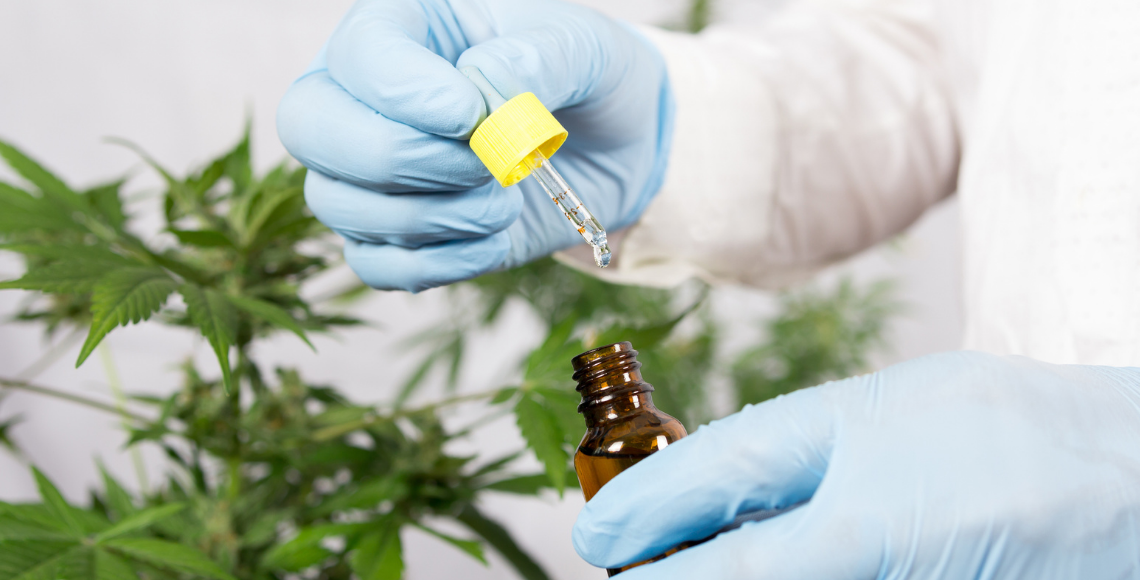Cannabidiol - Developing a new treatment for psychosis
Psychotic disorders, such as schizophrenia, affect two in every 100 people, and are among the most disabling of all health conditions. The annual cost of caring for people with psychosis in England is around £10 billion a year.
Psychosis is mainly treated using antipsychotic drugs, which were introduced in the 1950s. Although these are helpful for many, they do not relieve symptoms in around a quarter of patients. They can also have serious side effects, such as drowsiness and weight gain, and patients are often reluctant to take them. There is a pressing need for new treatments.
Preventing paranoia with cannabidiol
One of the most promising new treatments is Cannabidiol (CBD), which is found in the cannabis plant (see Figure A).
Our team from the National Institute for Health Research (NIHR) Maudsley Biomedical Research Centre, including early career researchers, have shown that CBD can prevent drug-induced paranoia in healthy individuals and that it works by normalising activity in the hippocampus and striatum - the same parts of the brain that are most affected in patients with psychosis. These studies also suggest that CBD acts on a different chemical pathway in the brain to antipsychotic drugs. Figure A: Cannabidiol is found in the cannabis plant; Figure B: CBD significantly improved psychotic symptoms in a placebo-controlled trial.
Figure A: Cannabidiol is found in the cannabis plant; Figure B: CBD significantly improved psychotic symptoms in a placebo-controlled trial.
Improving symptoms of psychosis
In partnership with GW pharmaceuticals, a company that manufactures CBD, we carried out the first placebo-controlled trial of CBD in patients with psychosis. This showed CBD significantly improved psychotic symptoms (See Figure B), and that this was not associated with any side effects.
Our patients are much more enthusiastic about taking CBD than antipsychotic drugs, and its high acceptability to patients is a key advantage.
We have since secured funding from NIHR and the Wellcome Trust to investigate whether CBD may be helpful to patients in the early stages of psychosis, and to patients whose symptoms are worsened by cannabis use. These studies will also help us to understand more about how CBD acts on the brain, so that other drugs that target the same chemical pathway can be developed.
IMPACT AREAS:






